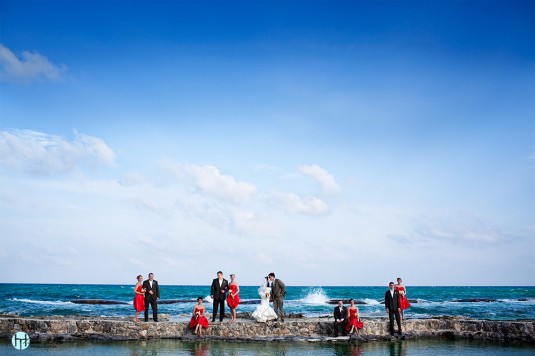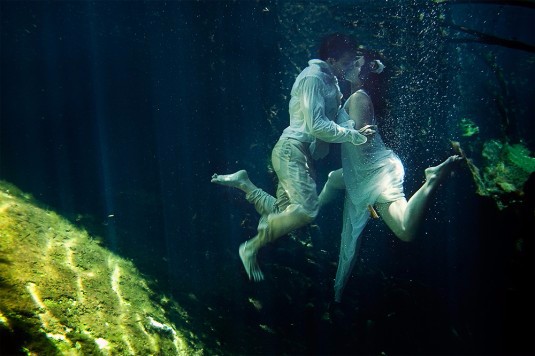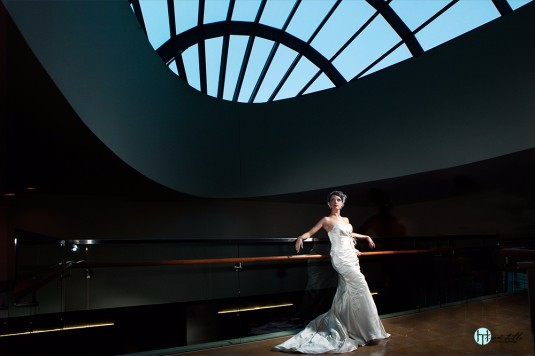Legal International Photography
A few months back there was a discussion on the PhotoBiz fan page about working abroad. I work abroad constantly and it’s perfectly legal, but there are some steps you must take in order to work legally. There is nothing more upsetting than listening to photographers talk about how they work while abroad. Remember, you are a guest in another country and as such you should respect the laws.

In order to work legally in another country there are a few steps that need to be taken in order to do so. Most countries are very similar, but for the purpose of this post I will show you the steps I take to shoot in Mexico since this is a common place for most US based photographers. Long past are the days where a photographer could say they were a guest and then cover the wedding. Nowadays most resorts have their own photographers, so when clients hire an outside photographer you are taking money out of their pockets. In certain parts of the country resorts are requiring an extra fee if clients are bringing their own photographer. It really shocked me, while at WPPI, that several “high profile” photographers where still giving the advice to lie to the resorts and say they are guests at the wedding. While this has worked in the past, as mentioned before, resorts and authorities are catching on. Many photographers have had their equipment confiscated on site, as well as a few that have been arrested.

First and foremost before you take on any weddings abroad, make sure your passport is current and that you have at least a year before it expires. This should be your priority, in order to apply for any kind of a visa you must have at least 6 months before it expires. Once you have taken care of the passport your next step should be to pay a visit to the consulate of the country you will visit, and ask for the rules and regulations to take professional equipment into the country. One thing that I do is fill out a CBP Form 4457. You can use this form to register all of your equipment and keep tabs on it. This also helps with proving that you are not taking equipment into the country to sell. In the past you had to fill out an FM-3 form but that is no longer required by the Mexican Government since most photographers do not stay longer than six months for an assignment. Like mentioned before, make sure that you check with your local consulate office.

When traveling to Mexico you can bring up to two professional bodies per person. For example if your second shooter is traveling with you, then you can bring in four bodies. I personally never check my equipment in. I always carry it on, and for the most part airlines prefer that you keep it with you as well, be sure to invest in a good travel case.

While in the air you will be handed a customs declaration form. Always, Always, Always be truthful! Always let them know you have professional equipment with you. Now you do not have to specify what type of business you will be doing. If your transactions have been paid in full in the US you are not liable to pay taxes for your work in the country. However if you bring more equipment than you are allowed there might be a fee, so make sure you take only the equipment you think you might need. Once you arrive you will have to pick up your luggage and go through customs, Mexico does its inspections via a lottery system. After your luggage goes through x-ray you will be asked a few questions to test your knowledge of the articles. Never argue with the custom agents and always be truthful with them. You will be prompted to push the revision button. If you get a green light they will let you go through, if you get a red light you will be asked to open your equipment bag and luggage forrevision. Most of the time it’s a simple process and takes only a few minutes.

This is where many photographers run into trouble. I cannot emphasize enough to be completely honest and do not be afraid. Custom agents are only doing their job. This is a safety issue and we all have to go through it. Destination weddings are a great way to get exposure, but remember they are a lot of work and careful planning is necessary. Remember that each country has its own set of laws and must be followed. Never under any circumstance put yourself in a situation where you are in jeopardy. If your equipment is confiscated your insurance may not cover it. I wish you all safe travels and hope this answered some questions. If you have any specific questions you may email me at info[at]hiramtrillo[dot]com. Happy shooting to all!





Leave a comment
1 Comments
Feb 28, 2021, 6:07:48 PM
Mara - Thank you for the only useful international destination photography article ANYWHERE. LOL